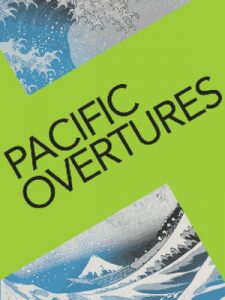Why ‘Come from Away’ Didn’t Win the Tony and Other Insights from New York
San Diego is justifiably proud of its record of developing shows that play New York. And, as a result, we have some wonderful artists who work here, sometimes on single projects, sometimes returning regularly.
Many of the shows that developed here did well in New York, once they landed a slot at a theatre. “Doing well” is a relative thing, though, as I was reminded clearly during my June theatre trip. Focusing on shows that had some connection to San Diego, it became clear that the big story was whether the San Diego world premiere musical, Come from Away would win the Tony™ Award for Best Musical. It didn’t, but the race was clearly close.
To get to my speculation about Come from Away’s loss, though, I need to review the week of theatre I saw.
I had tickets to two of the four nominated musicals, Come from Away, and Natasha, Pierre, and the Great Comet of 1812. I decided to skip Groundhog Day, and the other musical I didn’t see was the one that won: Dear Evan Hansen. Tickets for this show, which was written by Steven Levenson with a score by Benj Pasek and Justin Paul and a lead performance by Ben Platt, were sold out months ahead. The only other show with such demand was a revival of Hello Dolly! starring Bette Midler.
 I also saw three musicals that were not in the award competition. Two of these were performing off-Broadway, and I’ll return to those. The third was Anastasia, a musical based on two films, with a book by Terrence McNally and score by Lynn Ahrens and Stephen Flaherty, the team responsible for Ragtime. It was directed by Darko Tresnjak, and therein lies its San Diego connection. Mr. Tresnjak directed The Old Globe’s summer Shakespeare festival for a time, and, as artistic director of Hartford Stage, he has partnered with The Old Globe to try out A Gentleman’s Guide to Love and Murder, the 2014 Tony winner for Best Musical, as well as a revival of Kiss Me, Kate.
I also saw three musicals that were not in the award competition. Two of these were performing off-Broadway, and I’ll return to those. The third was Anastasia, a musical based on two films, with a book by Terrence McNally and score by Lynn Ahrens and Stephen Flaherty, the team responsible for Ragtime. It was directed by Darko Tresnjak, and therein lies its San Diego connection. Mr. Tresnjak directed The Old Globe’s summer Shakespeare festival for a time, and, as artistic director of Hartford Stage, he has partnered with The Old Globe to try out A Gentleman’s Guide to Love and Murder, the 2014 Tony winner for Best Musical, as well as a revival of Kiss Me, Kate.
One might think that the creative team for Anastasia would be sure to produce a winner, but critically the assessment was mixed-to-negative. And with good reason: Act 1 was mediocre on all counts, especially Mr. McNally’s book. Things improved in Act 2, where pros John Bolton and Caroline O’Connor take over the story and Mr. Tresnjak added some of the directorial touches that make his work distinctive.
Interestingly, Anastasia is selling very well, with an average ticket price near that of Wicked. In fact, Anastasia is selling to Wicked’s demographic: pre-teen and teen-aged girls and young women. Four international touring companies, as well as one for the U. S., have been announced. As Mr. Tresnjak will probably have a hand in directing each, his take-home pay should be significant.
What was reinforced for me out of these examples is that the “business” part of show business is very important in New York, perhaps more so than in places like San Diego. Shows get produced in New York because producers and creatives think they can make money, and if they can find an audience and market to that audience effectively the artistic quality may not matter so much.
 Natasha, Pierre, and the Great Comet of 1812 may have suffered from an identity crisis. Developed entirely in New York, it performed in a very small theatre, then in a tent in the Meatpacking District, then in another tent in the Theatre District before reaching Broadway. In each case, the appeal was the immersive quality of the show, as created by director Rachel Chavkin, along with an sung-through score by Dave Malloy. By the time it reached Broadway, the Imperial Theatre was turned into a nightclub with playing spaces throughout and audience members on the stage as well as in the house. Pop star Josh Groban made his Broadway debut playing Pierre, but several in the company had been with the show from its earliest days.
Natasha, Pierre, and the Great Comet of 1812 may have suffered from an identity crisis. Developed entirely in New York, it performed in a very small theatre, then in a tent in the Meatpacking District, then in another tent in the Theatre District before reaching Broadway. In each case, the appeal was the immersive quality of the show, as created by director Rachel Chavkin, along with an sung-through score by Dave Malloy. By the time it reached Broadway, the Imperial Theatre was turned into a nightclub with playing spaces throughout and audience members on the stage as well as in the house. Pop star Josh Groban made his Broadway debut playing Pierre, but several in the company had been with the show from its earliest days.
The production was widely admired and received twelve Tony nominations. And, it won two of its categories – lighting and scenic design. The marketers shortened the title to The Great Comet and downplayed the fact that the story was based on a section of War and Peace. The direction played up the sexuality of the story, but much of its nuance (and some important plot points) were lost in the process. Mr. Groban admirably disappeared into the character of Pierre, but audience members who might have been interested in a pop star performance would have been disappointed. And, the immersive character of the show will make it difficult, if not impossible to tour or produce regionally. All of these factors probably affected award votes for a show admired for its complexity and stagecraft.
 Off-Broadway doesn’t have as many financial pressures, and productions there may have a little more breathing room. But, pressures still exist, depending on the nature of the artistic endeavor. At Classic Stage Company, where The Old Globe’s Barry Edelstein was once artistic director, John Doyle mounted a daring revival of Stephen Sondheim’s little-produced musical, Pacific Overtures. With Mr. Sondheim’s assent, he cut the show to 90 minutes, including eliminating several songs. Mr. Doyle is a minimalist (Globe audiences may remember his production of the musical, A Catered Affair), and he put the tale of Western Colonialism in Japan on a bare stage with production values that allowed text and music to come to the fore. Mr. Doyle’s one bow to celebrity was to cast George Takei (Allegiance) in the role of the Reciter. It all worked for me quite brilliantly, though I know that some Sondheim purists were disappointed.
Off-Broadway doesn’t have as many financial pressures, and productions there may have a little more breathing room. But, pressures still exist, depending on the nature of the artistic endeavor. At Classic Stage Company, where The Old Globe’s Barry Edelstein was once artistic director, John Doyle mounted a daring revival of Stephen Sondheim’s little-produced musical, Pacific Overtures. With Mr. Sondheim’s assent, he cut the show to 90 minutes, including eliminating several songs. Mr. Doyle is a minimalist (Globe audiences may remember his production of the musical, A Catered Affair), and he put the tale of Western Colonialism in Japan on a bare stage with production values that allowed text and music to come to the fore. Mr. Doyle’s one bow to celebrity was to cast George Takei (Allegiance) in the role of the Reciter. It all worked for me quite brilliantly, though I know that some Sondheim purists were disappointed.
Off-Broadway can also be a stopping-off point for development of work that might have commercial potential. Diversionary Theatre’s world premiere musical, The Boy Who Danced on Air, was playing such a run at the Abingdon Theatre, and I was glad to have caught a performance on its closing weekend.
 For those who may have missed this musical, it is based on a PBS documentary on Afghan men who buy pre-pubescent boys from poor families, teach them to dance as women, and keep them for their pleasure until they reach puberty, when they are sent away to arranged marriages.
For those who may have missed this musical, it is based on a PBS documentary on Afghan men who buy pre-pubescent boys from poor families, teach them to dance as women, and keep them for their pleasure until they reach puberty, when they are sent away to arranged marriages.
It was reassuring that some of the same cast (Troy Iwata and Jonathan Raviv) and creative team (director Tony Speciale and choreographer Nejla Yatkin) worked on the New York version. Composer Tim Rosser and writer Charlie Sohne had revised the show quite a bit since its San Diego run. I found some of the revisions to be positive (a new closing number sends the audience out humming, and Ms. Yatkin’s choreography had become more complex, in a good way) but some not so much (I missed the Afghan influences in the score, and missed the scene where Mr. Iwata as the boy, Paiman, was learning to dance dressed in a woman’s skirt). Major problems with the story line in Act 2 had been addressed, but some difficulty remained. Lyrics were still uneven in quality.
But, despite audience enthusiasm (it recalled the cast for an improvised curtain call well after the house lights had come up), I couldn’t stop thinking that the show’s subject matter was going to limit its commercial viability. I understand that it may move to London next, and I’d be interested in following its progress there.
 Thinking about commercial viability brings me back to the topic I avoided so far – why Come from Away didn’t win the Tony Award for Best Musical. Those who saw the world premiere production at La Jolla Playhouse will be glad to know that the tale of a group of townspeople in Gander, Newfoundland, who welcomed airline passengers during the closure of U. S. airspace following the 9/11 attacks has changed little and what changes I noticed were all for the better. Most of the La Jolla cast is still with the show, including San Diego-based actor Geno Carr, and Christopher Ashley’s direction (for which he won a Tony) is still a highlight. The night I saw the Broadway version, the audience was “with” the cast from the show’s early moments, and we all walked out of the theatre feeling that we were somehow better people for having seen Come from Away.
Thinking about commercial viability brings me back to the topic I avoided so far – why Come from Away didn’t win the Tony Award for Best Musical. Those who saw the world premiere production at La Jolla Playhouse will be glad to know that the tale of a group of townspeople in Gander, Newfoundland, who welcomed airline passengers during the closure of U. S. airspace following the 9/11 attacks has changed little and what changes I noticed were all for the better. Most of the La Jolla cast is still with the show, including San Diego-based actor Geno Carr, and Christopher Ashley’s direction (for which he won a Tony) is still a highlight. The night I saw the Broadway version, the audience was “with” the cast from the show’s early moments, and we all walked out of the theatre feeling that we were somehow better people for having seen Come from Away.
But…
There are some built-in hurdles for an ensemble production to be recognized in the Tony competition. If there are no stars, nominations in the acting categories are going to be hard to come by. If the book and the score are all of a piece and there’s no “big” number, winning those categories is going to be problematic. If the sets, costumes, and production numbers aren’t flashy, winning in those categories is going to be unlikely. And, if one show, such as Dear Evan Hansen, wins many of those categories, Tony voters are going to naturally think that the show that won a lot must be the best.
Come from Away basically had all its eggs in the Best Musical basket without much in the other categories to back up its claim. Nevertheless, a poll of voters suggested that the race was close. The vote for Christopher Ashley’s direction seemed to indicate that voters wanted to recognize Come from Away. In the end, having a show that wasn’t in the usual Broadway mold worked to its detriment in being recognized on Tony night.
The good part of all this is that Come from Away is doing just fine on ticket sales, and it will open a sit-down production in Toronto (where Canadians have already proven that they love it) as well as a U. S. tour.
And, frankly, it’s telling that Bette Midler won the Tony for playing the likes of Dolly Levi. But, folks, that’s show biz.

In addition to reviewing theatre for San Diego Story, Bill also reviews for TalkinBroadway.com. He is a member of the San Diego Theatre Critics Circle and the American Theatre Critics Association. Bill is an emeritus professor in the School of Journalism and Media Studies at San Diego State University.

I really enjoy your perspective and insights. Just wanted to note that The Great Comet did win two Tony Awards (of its twelve nominations): Best Scenic Design and Best Lighting Design of a Musical.
It is incorrect to state that The Great Comet did not win any of it’s Tony nominations, in fact it won two: scenic design for a musical and lighting design for a musical..
Natasha Pierre et all actually won two (2) Tony Awards – scenic design and lighting design. You say it won none.
There are over 800 Tony Voters. There is no way we can ‘collude’ to give an award to Christopher Ashley as a consolation prize. Actually in the industry, its somewhat of a mystery how he won. No voter I have spoken to admits voting for him over the two favorites, Michael Greif and Rachel Chavkin.
To say “Natasha, Pierre…” “was widely admired and received twelve Tony nominations. But, it didn’t win even one of its categories” is simply untrue. It won two Tony Awards. It won scenic design and lighting design of a musical.
It also seems odd to make comparisons to “Dear Evan Hansen,” a show you didn’t see.
I don’t live in NYC and I don’t work as a critic, but I’ve seen the shows discussed and I know what won. Even if you don’t know what won, do your job as a journalist and look it up before reporting.
Thanks to the readers who caught this error. I have fixed it in the text of the piece.
Concerning the musical “The Boy Who Danced on Air,” it certainly did not help this New York production when the New York Times review was little more than a sneering moral condemnation of even broaching this topic, much less having to endure its incarnation in a staged work. The reviewer apparently had never seen the universally adored Puccini opera “Madama Butterfly” about a defensseless young Japanese girl toyed with by an American naval officer under the guise of a sham marriage.